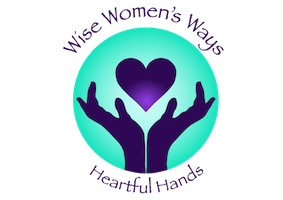Lack of iodine leads to fibrocystic breast disease, PCOS and endometriosis.
Iodine is a mineral known to be important for thyroid function. However, doctors are rarely taught how important adequate iodine intake is.
The thyroid gland affects a huge list of functions in the body, and iodine is needed for proper thyroid function. Along with thyroid function, iodine is important for a whole host of reasons.
Iodine is a mineral similar to calcium and magnesium. It is associated with the ocean and is found in large amounts in seaweed. It is also found in other plants and animals from the sea.
Countries that depend on significant dietary intake of seafood and seaweed, such as Japan, boast a much higher iodine intake than many landlocked countries.
Lack of iodine can lead to several different problems, including poor thyroid function. When the thyroid gland lacks iodine it may increase the size of the goiter. This enlarged gland searches out any iodine in the body.
Scientists learned long ago that iodine supplementation, commonly done by adding it to salt, may help lessen iodine deficiency.
Unfortunately, iodine deficiency is much more common than we realize. Over one billion people may be at risk for iodine deficiency
[Source:
Delange<http://health.howstuffworks.com/wellness/food-nutrition/vitamin-supplements/iodine1.htm>].
This has huge implications since low iodine is associated with mental retardation. Some estimates suggest that nearly 20 million infants may be at risk for brain damage or mental retardation due to low iodine during the mother’s pregnancy
[Source: Hetzel<http://health.howstuffworks.com/wellness/food-nutrition/vitamin-supplements/iodine1.htm>].
Proper amounts of iodine are needed for growth and development of the brain.
Other conditions linked to low iodine include:
- ADHD,
- pregnancy loss,
- multiple sclerosis,
- Alzheimer’s disease,
- Parkinson’s disease and
- other nervous system diseases
[Source: Boyages<http://health.howstuffworks.com/wellness/food-nutrition/vitamin-supplements/iodine1.htm>,
Foster<http://health.howstuffworks.com/wellness/food-nutrition/vitamin-supplements/iodine1.htm>
].
Iodine support can help with many issues. Iodine is needed as the major mineral for the thyroid.
Clinically, many people experiencing the common symptoms of low thyroid function such as fatigue, cold hands and feet, weight gain, dry skin and weak nails find benefit with iodine supplementation.
Often these patients have normal thyroid tests but still feel that something is considerably out of balance.
Iodine has been used to treat infections and help travelers purify water in the wilderness. Iodine is helpful to treat and prevent the formation of cysts, including ovarian and breast cysts
[Source: Ghent<http://health.howstuffworks.com/wellness/food-nutrition/vitamin-supplements/iodine1.htm>].
Many women have found significant relief from fibrocystic breast pain through iodine treatment. This process can take 4-6 months of supplementation for full effect.
Many doctors feel that iodine deficiency is increasing. This is due to lack of iodine in the diet and because certain minerals may be blocking iodine from doing its job in the body.
Iodine is in the same mineral family as three other elements: chlorine, fluoride and bromide. These two elements are readily found in our environment; chlorine and fluoride are added to water, and bromide is added to many foods.
As exposure to these chemicals increase, there is a growing competition between iodine, chloride, fluoride and bromide in the body, which has the potential to obstruct the health and function of the thyroid gland. To counteract this, the body must be given enough iodine.
For many years it has been known that lack of iodine may lead to goiters, thyroid problems and potential development issues with children born lacking iodine. For that reason, iodine supplementation has occurred by adding it to salt, with the goal of providing iodine to many through a simple means. This may not be enough for many individuals.
Food sources of iodine include kelp, strawberries and yogurt. Supplementation can be done through vitamins as well as liquid forms of iodine.
A common liquid form available is Lugol’s solution. Typically, one to two drops of Lugol’s solution are taken in water. Lugol’s is also applied to the skin, which clinically has helped infections and has also been used to treat old scars and keloids.
A tablet called Iodoral is also available which contains 12.5 mg of a combination of iodide and iodine. These two forms are both important to the body.
Iodine supplementation has helped many who may have struggled from cysts, chronic infections, thick secretions in the lungs or perhaps had many symptoms of low thyroid but yet still had normal tests.
Nonetheless, iodine supplementation should be done with a physician’s help to guide the proper dosage.
Too much iodine may be overstimulating to the thyroid hormone system.
Signs of too much may include increased heart rate or anxiousness. This will be very rare for most, especially when dosed appropriately.
Individuals who are allergic the dyes that include a radioactive form of iodine used in x-ray testing are not necessarily allergic to nutritional iodine supplementation. This is true because iodine is essential to life; without it we could not function.
Sources
- Delange, F. (1998). Risks and Benefits of Iodine Supplementation. Lancet, 351:923-924.
- Hetzel, Basil S., M.D. (1993). The Control of Iodine Deficiency. American Journal of Public Health, 83(4):494-495.
- Brownstein, David M.D. Iodine Why You Need It, Why You Can’t Live Without It.
- Boyages, SC. (1993). Clinical Review 49: Iodine Deficiency Disorders. J Clin Endocrinol Metab, 77(3):587-591.
- Foster, Harold D. (1987). Disease Family Trees: The Possible Roles of Iodine in Goiter, Cretinism, Multiple Sclerosis, Amyotrophic Lateral Sclerosis, Alzheimer’s and Parkinson’s Diseases and Cancers of the Thyroid, Nervous System and Skin. Medical Hypotheses, 24:249-263.
- Ghent, W.R. (1993). Iodine Replacement in Fibrocystic Disease of the Breast. Canadian Journal of Surgery, 36:453-460.
